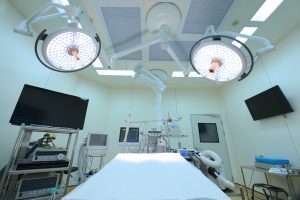Protecting Against the Risks Associated with Breast Implant Surgery

Photo Credit: nimon / Shutterstock.com
Breast augmentation, or augmentation mammoplasty, has been the most common elective cosmetic surgery in the United States for over a decade. Last year alone, there were over 300,000 breast augmentation surgeries performed across the United States. This figure represents a 3% increase from the year before, and a 41% increase from the number of similar surgeries performed in 2000.
The science behind breast augmentation surgery is sound, and the FDA has approved cosmetic breast augmentation surgery. However, the popularity of the surgery has resulted in a situation in which medical providers rush to fill the perceived demand, often overlooking critical safety protocols along the way. Indeed, the FDA estimates that approximately 1% of all patients undergoing a breast augmentation surgery will experience some form of complication or adverse medical event. These may include:
 Illinois Injury and Mass Tort Lawyer Blog
Illinois Injury and Mass Tort Lawyer Blog



